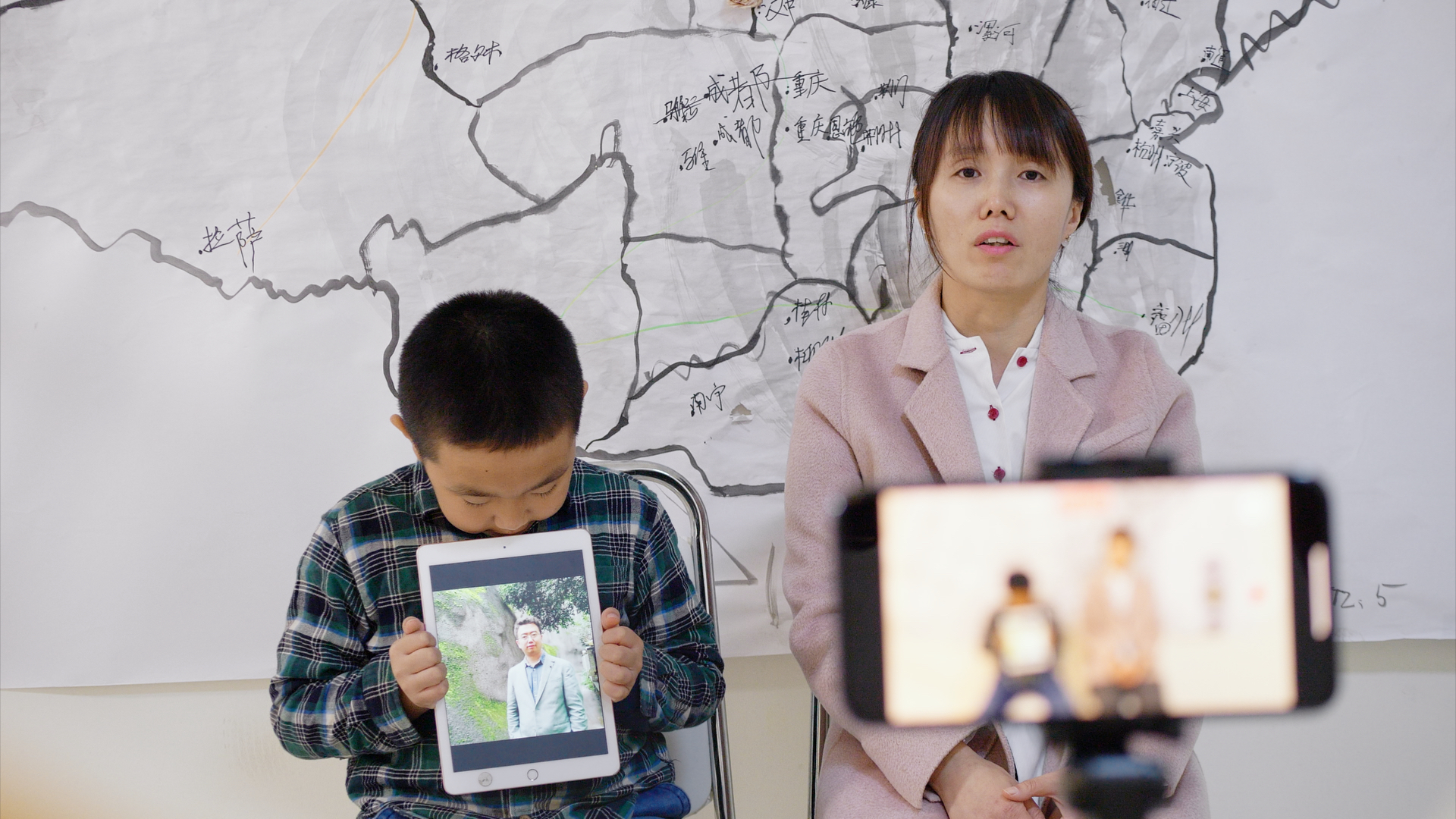The number of people credited as “Anonymous” in Jialing Zhang’s documentary “Total Trust” is chilling. Banned from China after making the documentary “One Child Nation,” Zhang relied on those in the country to help bring to life this examination of life in a surveillance state. The fear is real; in a coda at the end, we’re told that Sophia Xueqin Huang, a reporter critical of the government and one of the three women upon which the documentary focuses, was arrested on her way to study in the U.K. on charges of “inciting subversion of state power.”
In ways big and small, “Total Trust” tells audiences, the Chinese government is watching its citizens. CC TV does its part; biometrics also plays a major role. But the true villains turn out to be the Chinese citizens who eagerly police their own neighbors.
Zhang doesn’t spend enough time on the groupthink of everyday people; instead, “Total Trust” focuses on three women and how their lives have been upended by the government. Zijuan Chen is desperately trying to find out information about her imprisoned husband, Weiping Chang, who made the mistake of serving as a defense attorney. (The Chinese government is not a fan of defense attorneys.)
She’s supported by Wenzu Li, who lived through the same situation when her husband, Quanzhang Wang, was arrested and detained for five years. Both women are subject to harassment and increased surveillance; at one point, Zijuan is barred from places because her digital data claims she was COVID positive or had recently been exposed to COVID. Neither was true.
The third subject of “Total Trust” is journalist Huang, who supported Weiping during her husband’s imprisonment. Outspoken in her criticism of the Chinese government, Huang offers a wry counterpoint to the frustrated rage of Weiping and Wenzu; at one point, Huang recounts reading aloud from George Orwell’s “1984” to a surveillance camera pointed at her home. After a few days, the camera was removed.
The litany of Big Data collected on a regular basis is terrifying. But more insidious and less of a focus in “Total Trust” is the ways in which regular people eagerly do their part in support of the government. Imagine the worst Home Owners’ Association, exacerbated to draconian levels. Teams of volunteers patrol the streets, marking parking violations and reporting people who are not wearing masks. Their reward for this is points deposited in their social credit report, while violaters are docked points. (Yes, very much like “The Good Place.”)
At one point, the Wang family is blocked from leaving their apartment by strangers, who serenely offer to walk their son to school for them while they remain inside until someone comes to explain why. Wenzu Li reacts with rage and then a bout of impassioned cooking, her coping mechanism. And despite Zijuan’s efforts and protests to free her husband, his own parents are frightened to do more than protest once — a tense confrontation between them at a party with Zijuan’s young son is heartbreaking and infuriating. In every way, the government has crept into personal interactions in a way that shouldn’t feel as familiar to American audiences as it does.
Timing is a tricky thing — if “Total Trust” came out before the COVID-19 pandemic, would it have more or less resonance for Americans? After years of citizens policing one another’s mask-wearing, vaccination status, and party-throwing, it’s jarring to see how similar life in China is to life in the U.S. The Chinese government is far more organized in its control of the day-to-day than America is, but there’s something eerie about watching smiling neighbors standing in front of a private residence, refusing to allow a family to leave, as if we’re watching “Black Mirror” riff on Shirley Jackson.
Zhang doesn’t draw parallels, to the detriment of the film. “Total Trust” is presented as a personalized glimpse into life in a borderline totalitarian state through the eyes of three women who are subjected to intense scrutiny and harassment at the instigation of their government. The subtext is there for those looking for it, but “Total Trust” is so passionately intent on highlighting these three women and their struggles that the bigger picture struggles to come into focus. After all, how many terms and conditions do we blithely agree to without reading? Are we that far removed from a time when political activism could render us unable to board a train because we volunteered our biometrics to make paying at a grocery store easier?
Filmtank approached Zhang about making a documentary on the increase in surveillance worldwide; because of her familiarity with China, she said in production notes, she chose to focus on that region. It makes sense, considering how ubiquitous and sophisticated the everyday technology is. But in terms of a warning about a future we seem inevitably headed for, there’s just enough remove to make it feel less urgent than it should.
Grade: B
Film Movement releases “Total Trust” in theaters on Friday, December 8.



